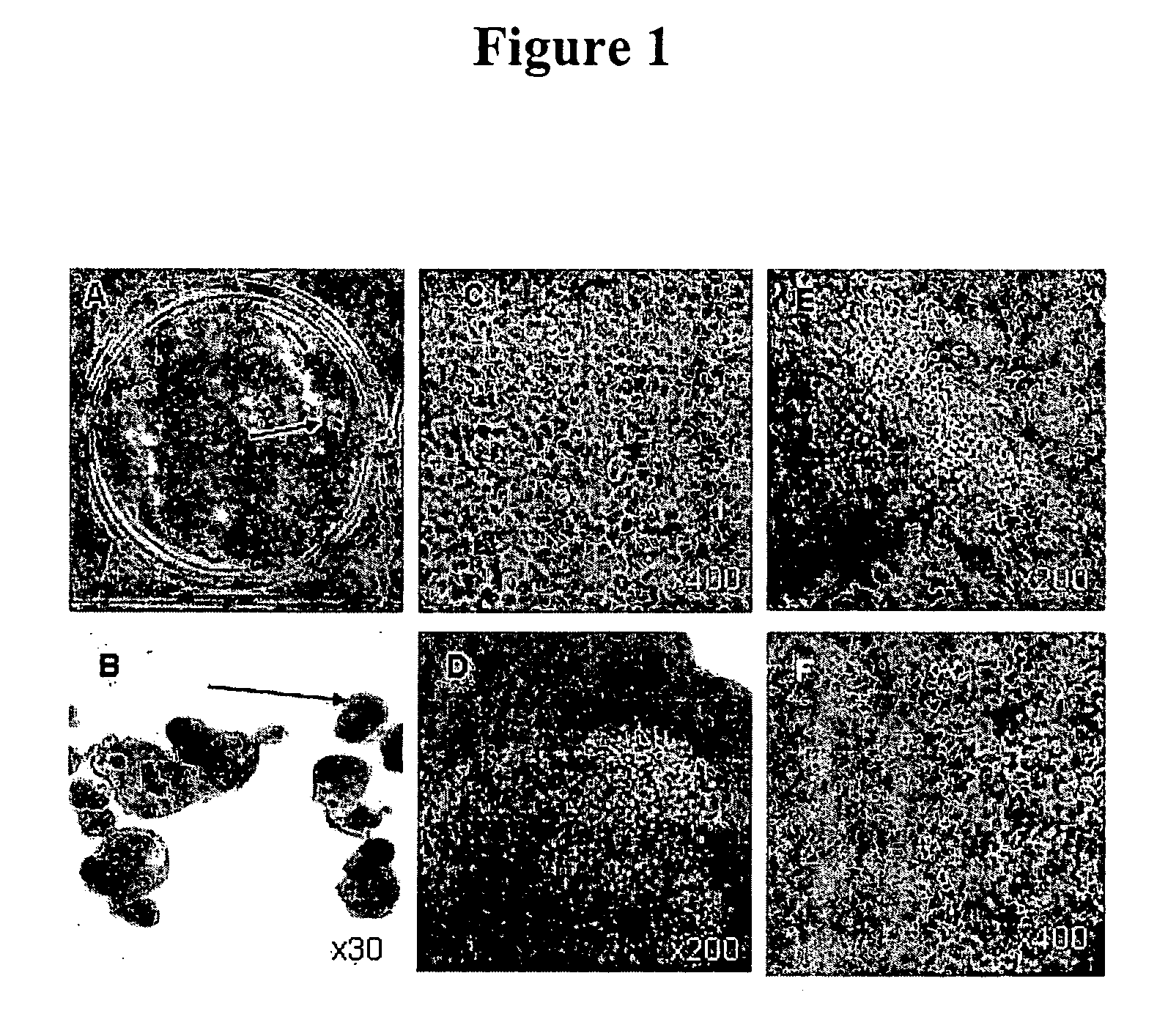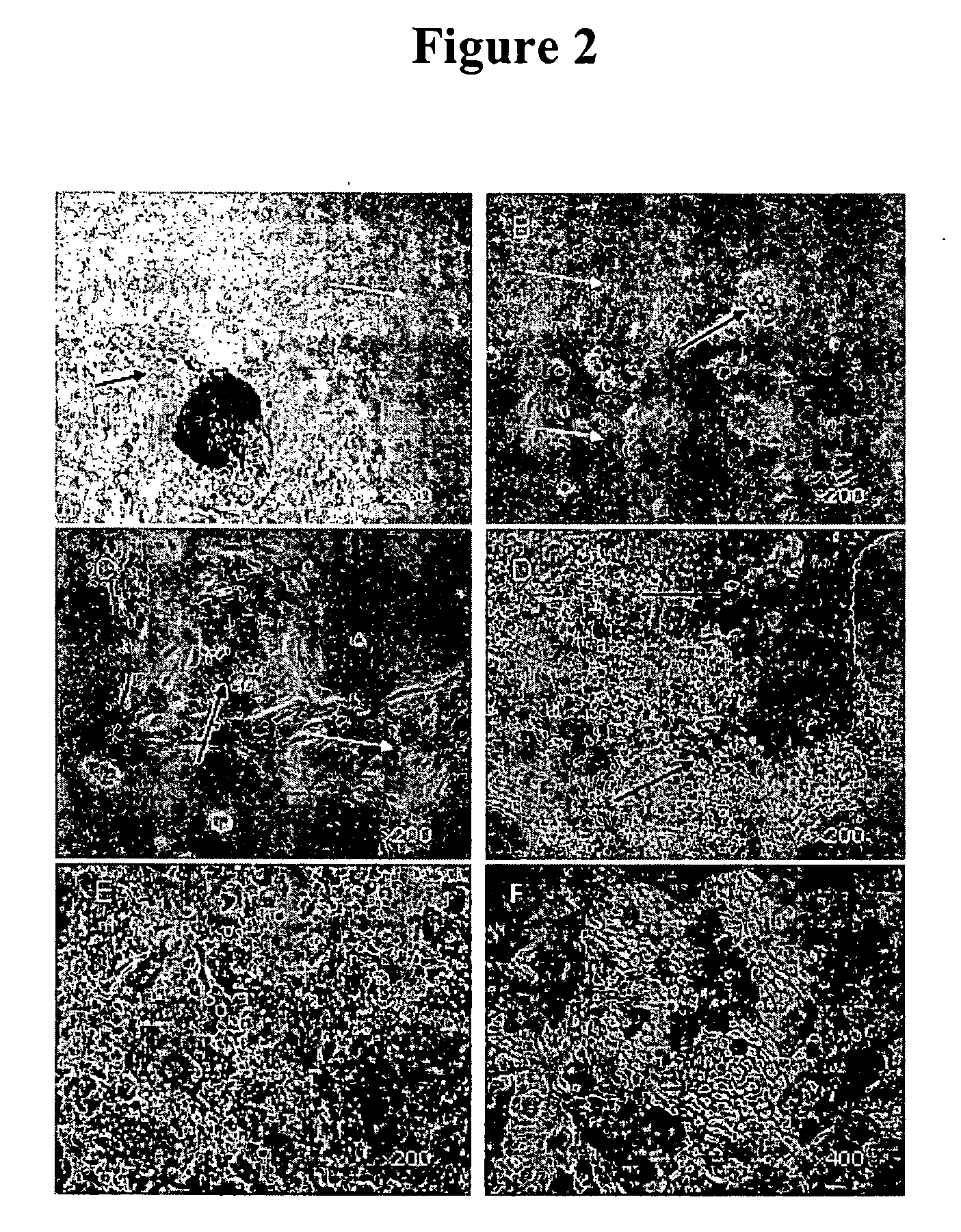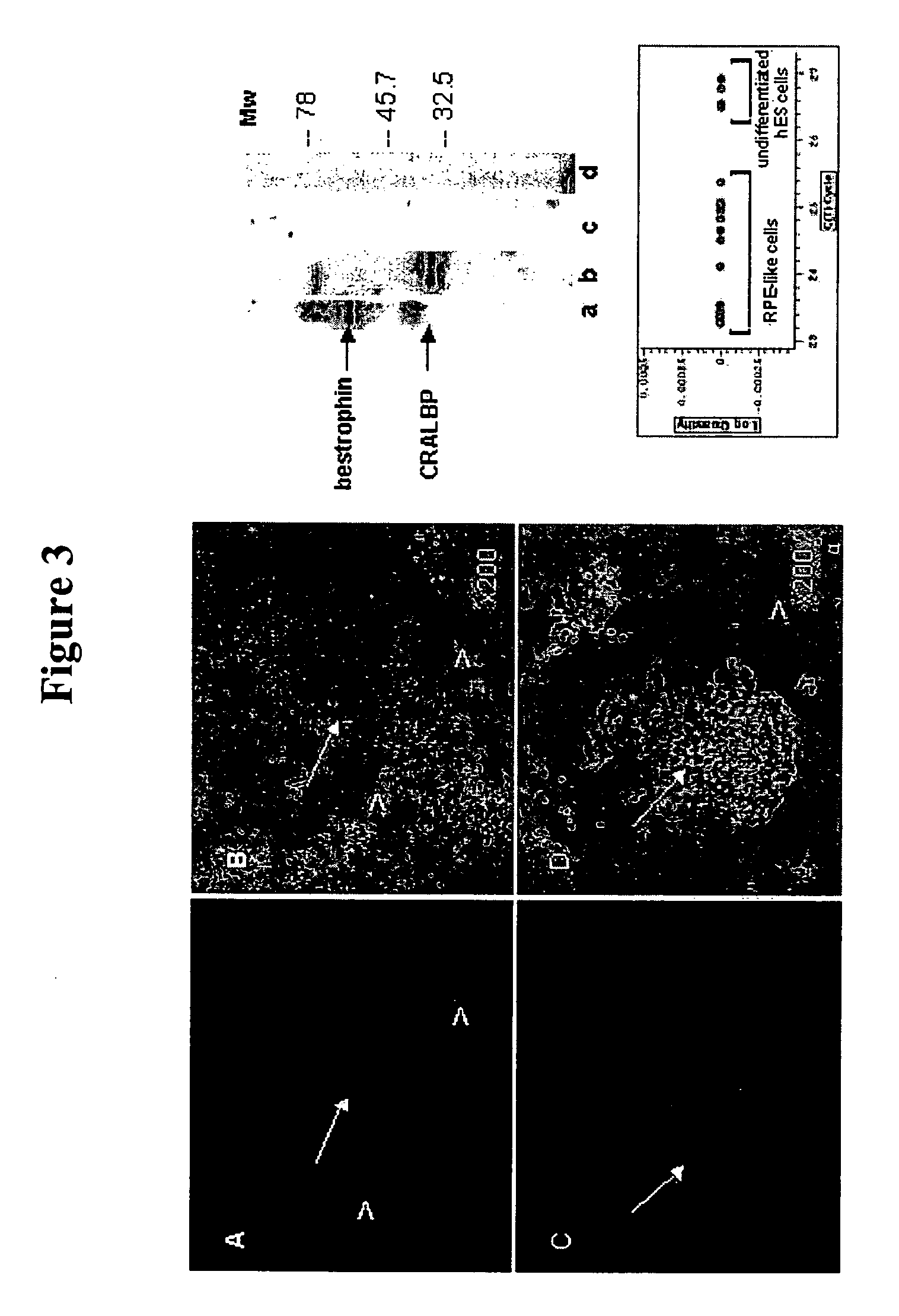Modalities for the treatment of degenerative diseases of the retina
a retinal degenerative disease and retinal technology, applied in the direction of biocide, cardiovascular disorder, drug composition, etc., can solve the problems of increased photoreceptor loss, reduced neovascularization ability, and reduced hla antigen complex, so as to improve the ability to prevent neovascularization and reduce the complexity of hla antigens
- Summary
- Abstract
- Description
- Claims
- Application Information
AI Technical Summary
Benefits of technology
Problems solved by technology
Method used
Image
Examples
example 1
Spontaneous differentiation into Pigmented Epithelial Cells in Long Term Cultures
[0060] When hES cell cultures are allowed to overgrow on MEF in the absence of LIF, FGF and Plasmanate, they form a thick multilayer of cells. About 6 weeks later, dark islands of cells appear within the larger clusters (FIG 1). These dark cells are easily seen with the naked eye and looked like “freckles” in a plate of cells as shown in FIG. 1A. At higher magnification these islands appear as tightly packed polygonal cells in a cobblestone monolayer, typical of epithelial cells, with brown pigment in the cytoplasm (FIG. 1C). There are differences in the amount of pigment in the cells with cells in the central part of the islands having the most pigment and those near the edges the least. (FIG. 1, E,F).
[0061] When hES cells form embryoid bodies (EB)—pigmented epithelial cells appear in about 1-2% of EBs in the first 6-8 weeks (FIG. 1B) . Over time more and more EBs develop pigmented cells, and by 3 mo...
example 2
Isolation and Culture of Pigmented Epithelial Cells
[0062] The inventors isolated pigmented epithelial cells from both adherent hES cell cultures and from EBs. Pigmented polygonal cells were digested with enzymes (trypsin, and / or collagenase, and / or dispase), and the cells from these pigmented islands were selectively picked with a glass capillary. Although care was taken to pick only pigmented cells, the population of isolated cells invariably contained some non-pigmented cells. After plating cells on gelatin or laminin for 1-2 days, the cells were considered to be primary cultures (P0).
[0063] Primary cultures contained islands of pigmented polygonal cells as well as some single pigmented cells. After 3-4 days in culture, non-pigmented cells that seemed to have lost epithelial morphology (flatter and cells with lamellipodia) appeared at the periphery of some islands (FIG. 2). The number of such peripheral cells increased over time, suggesting that these cells were proliferating, a...
example 3
Detection of RPE Markers
[0064] The preliminary characterization of these differentiated human cells as RPE is based on their similarity to RPE cultures previously described; principally, their epithelial morphology and possession of pigment. There are three types of pigmented epithelial cells in human body: retinal and iris pigmented epithelium and keratinocytes, but the latter don't secrete pigment. The epithelial structure and cobblestone morphology are not shared by other pigmented cells, e.g. melanocytes. It is also noteworthy that RPE cells have been shown to lose and regain their pigment and epithelial morphology when grown in culture (Zhao 1997, Opas and Dziak, 1994), and the pigmented cells behaved in a similar manner, so to test the hypothesis that the ES derived cells may be RPE, they were stained with antibodies to known markers for RPE: bestrophin and CRALBP. FIG. 4 (left panel) shows membrane localization of bestrophin (A) and CRALBP (C), both are found in pigmented ep...
PUM
| Property | Measurement | Unit |
|---|---|---|
| distance | aaaaa | aaaaa |
| time | aaaaa | aaaaa |
| fluorescent angiography | aaaaa | aaaaa |
Abstract
Description
Claims
Application Information
 Login to View More
Login to View More - R&D
- Intellectual Property
- Life Sciences
- Materials
- Tech Scout
- Unparalleled Data Quality
- Higher Quality Content
- 60% Fewer Hallucinations
Browse by: Latest US Patents, China's latest patents, Technical Efficacy Thesaurus, Application Domain, Technology Topic, Popular Technical Reports.
© 2025 PatSnap. All rights reserved.Legal|Privacy policy|Modern Slavery Act Transparency Statement|Sitemap|About US| Contact US: help@patsnap.com



